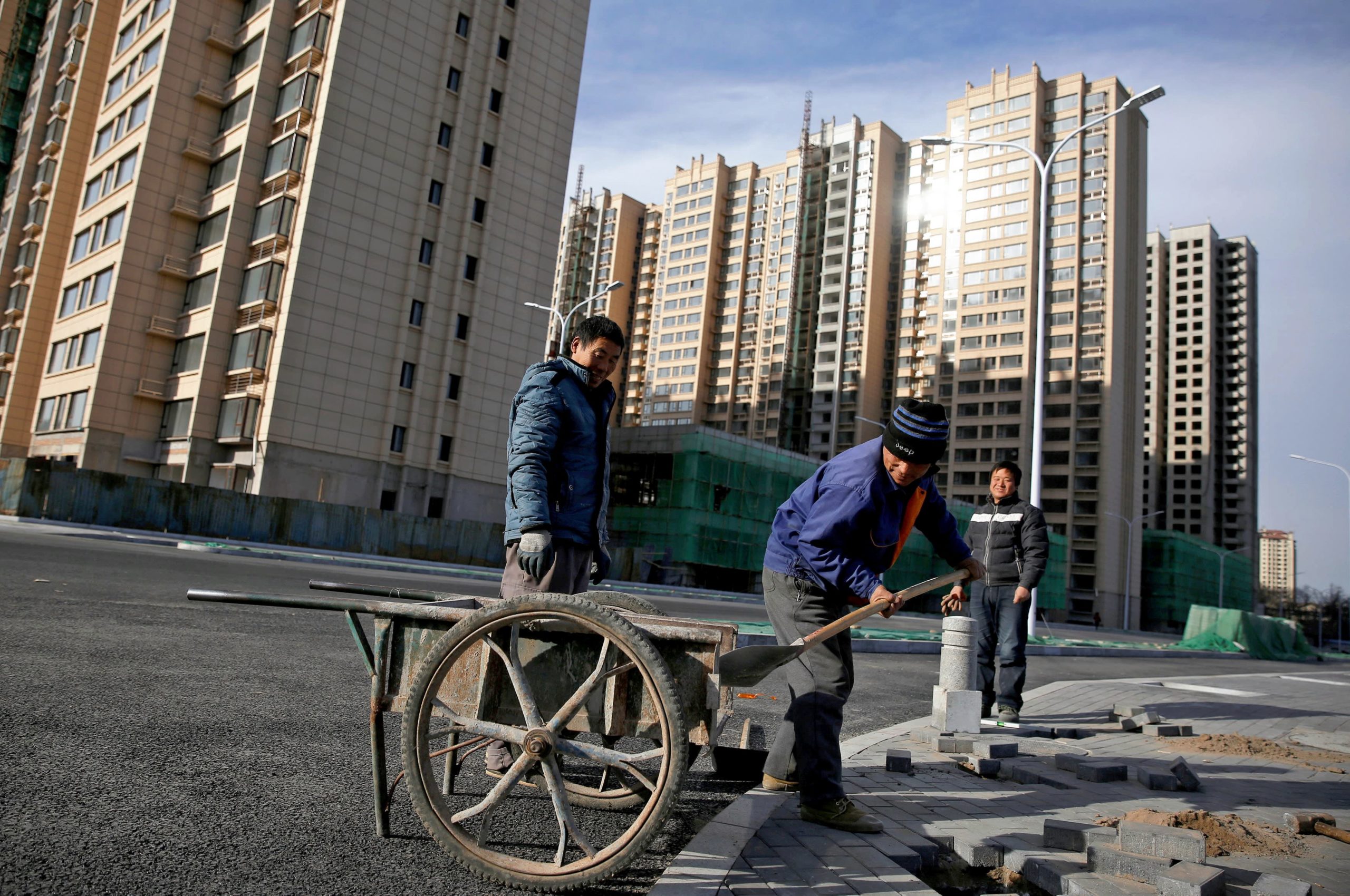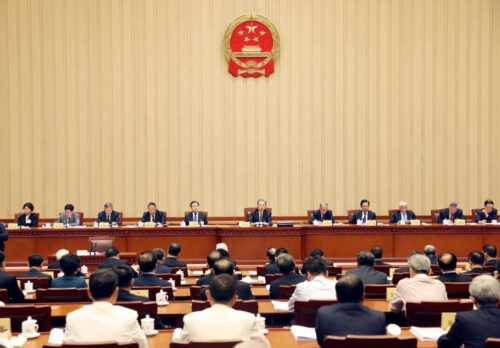A change in the economic weather?

Are economic storm clouds building above China? Here are some news stories from the last few days:
- “China could be facing a ‘debt iceberg with titanic credit risks’ following a boom in infrastructure projects by local governments around the country, S&P Global has warned,” reports the Financial Times (paywall): “Local governments may have accrued a debt pile hidden off their balance sheet as high as 30 trillion to 40 trillion yuan ($4.3 to 5.8 trillion) following ‘rampant’ growth in borrowings, the rating agency estimated.”
- Last week, “a slowing economy and weakening currency” as well as trade tensions with the U.S. were cited by Bloomberg (porous paywall) to explain the largest drop in China’s stock markets since February 2016. In reaction to this, “Shenzhen’s government is preparing to inject at least 15 billion of yuan into nearly 30 local listed companies to defuse the risk of share dumping as the country’s stock markets continue to fall,” reports Caixin.
- “Consumer prices rose at their fastest pace in seven months in September as crop rotation and bad weather pushed up food prices,” according to government reports cited by Caixin (paywall). Not good news: “Pricey food and wobbly heavy industry aren’t a combination Beijing was hoping for,” says the Wall Street Journal in a piece titled An ugly price equation for China (paywall).
- “There are multiple signs of rapidly slowing consumer demand in China which we believe could easily affect Apple’s demand there this Fall,” according to a recent note from a Goldman Sachs analyst, reports Business Insider. Apple shares were down 1.5 percent on Monday.
Here is yet another signal that rocky economic times may be ahead in China: Two Chinese women named Biyi and Yan write Elephant Room, an email newsletter that covers “all the things that are not over-the-top but are genuinely fun, personal, and valuable to the world’s China-curious minds.” The latest issue is titled When the weather change. Excerpt:
Throughout September, we kept having conversations with our Chinese fellows; we asked questions, listened to responses, and soon realized there was a common theme to all of the personal stories at this point: everyone is feeling trapped in straitened circumstances of some sorts, and is losing faith about the country’s, and their own future to varying extents.
The weather has truly changed, and the people are feeling it.
The “straitened circumstances” they mention are strictly economic. In the newsletter, they describe how several of their friends are finding it really difficult to make money and feeling pessimistic about their future.
I have a few similar anecdotes of people facing tougher times in China, but the plural of anecdote is not, of course, data. Worth thinking about: Scholar Yiqin Fu writes on Twitter:
Every time I read a political science paper or a news article citing U.S polling data, my heart sinks a little because the restrictions on polling in China mean that we rarely get to ask interesting questions…Young Chinese studying overseas are often thought to have a unique perspective on China.… When people ask what the Chinese public thinks of X, I have to extrapolate from what I read on Chinese social media or from what acquaintances said in real life. We all know how dangerous it is to infer public opinion from one’s own priors, especially given the bubble one lives in.
For an alternative view from a man who usually gets things right, watch this Bloomberg TV interview with economist Andy Rothman, who says U.S. trade negotiators are “underestimating the health of the Chinese economy,” and that it is a mistake to view the gloomy state of China’s stock markets as an indicator of the real economy’s resilience.
Also see: Why China bears are wrong: An interview with Andy Rothman (Sinica Podcast from 2016).






